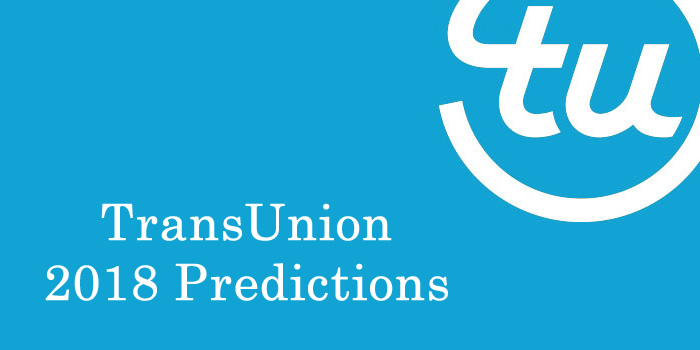
TransUnion is dusting off its crystal ball to make its predictions for 2018 and it’s a mixed bag.
With interest rates predicted to rise in the early half of 2018 and a slight cool off in the Canadian economy, credit reporting agency TransUnion is predicting an uptick in credit card default rates. TransUnion projects that the serious delinquency rate for credit cards will rise to 3.63 per cent in the fourth quarter of 2018, up from 3.02 per cent in the same quarter in the previous year.
That’s not all. TransUnion also predicts that Canadians will carry a slightly higher balance on their credit card in 2018. TransUnion sees the average credit card balance increasing to $4,220 in the fourth quarter of 2018 up from $4,155 in the prior year.
Outside credit cards, TransUnion sees overall serious delinquency rate on non-mortgage debt, which includes auto loans, credit cards, installment loans and lines of credit, to be largely unchanged in the new year. It sees the slightest of increase from 5.63 percent to 5.65 percent in the final quarter of 2018. It also sees the serious mortgage delinquency rate remaining about the same in 2018.
Going back to the credit card space, interestingly enough, we’re seeing a rise in the percentage of credit cards issued to non-prime borrowers over the last year. This trend is expected to continue in 2018. This reflects the desire of credit card issuers to boost their bottom line by expanding their business to consumers who may not have otherwise qualified for a credit card in previous years.
Why Should You Pay Down Your Debts When Interest Rates are Low?
Based on the record level of household debt, many Canadians don’t seem to be in a hurry to pay down their consumer debt. With low interest rates for the better part of a decade, who can blame them. But with the Bank of Canada forecasted to start raising interest rates in 2018, anyone with debt tied to prime rate will feel the pinch right away from higher rates. Higher rates means that their cash flow will be tighter going forward.
Instead of using low rates as an excuse to get in debt, use them as an opportunity to pay down your most costly debts (i.e. credit cards). Debt is cheaper when rates are low, but it’s also easier to pay off. When rates are low, more of your money goes towards principal and less towards interest. But when rates start rising, the opposite is true: more of your money goes towards interest, taking you longer to pay off your debts.
The Bottom Line
Low interest rates won’t be around forever. If you’re carrying a balance on your credit card like half of Canadians households, now is the time to make a plan to pay it off. With rates expected to rise, the first rate hike will mean you’ll have less money to put towards your credit card debt and other debts.
Take advantage of low rates and make a plan to aggressively pay down your credit card debts early in 2018. Your wallet and credit score will thank you.




